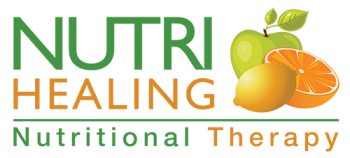Is your Mouth Healthy? - September 2008
This article discusses the health of the mouth because as you may not know; as well as being a Nutritional therapist, NLP Coach I have had years of experience looking into people's mouth as a Dental hygienist and educating in oral health.
So come on OPEN WIDE, sit back, and relax! And ask yourself...
Is your Mouth Healthy?
The mouth is the 'window to your health' and many times I have been able to advise clients on certain health issues just by examining their mouth during a routine dental hygiene visit.
Below are a few things to look out for when taking care of your mouth.
What's on your Tongue?
A healthy tongue should be pink, smooth in its contour and covered by fine projections called papillae, which give it a slightly shaggy appearance; within the papillae lay the taste buds – sweet, bitter, salt and sour.
These papillae trap food & cell debris giving it its greyish-yellow fine coating; this may become stained from coffee, tea, smoking etc.
A simple way of removing this fine coating is to brush the tongue with your toothbrush or buy a tongue cleaner but generally the active movement of the tongue and the sloughing off of the cells will naturally remove this coating.
If the tongue is heavily coated for prolonged periods (called Hairy tongue) this may indicate:
- A congested digestive system and an imbalance in gut bacteria with an overgrowth of yeast; contributing factors are sugary diets, dairy products, refined carbohydrates, caffeine, excess alcohol and dehydration.
- A decrease of good bacteria (lactobacillus acidophilus) inhabiting the gut or low on hydrochloric acid & digestive enzymes which help to breakdown food and aid absorption.
- Constipation – probably due to poor diet, lack of fibre & dehydration.
The advice that I would give to a client would be to:
- Start the day with a glass of warm lemon water before breakfast to improve digestion
- Improve your digestive system by supplementing with a probiotic; I recommend (Biocare) Bio acidophilus, also a good digestive enzyme Polyzyme Forte both taken with meals.
- Drink more fluids at least 8 tumble glasses a day or 2 litres in the form of water, herbal teas, vegetable juice and fresh juices diluted with 50% water. Cut down on the caffeinated drinks – coffee, tea, fizzy; as they increase the loss fluids and alcohol which is dehydrating.
- Increase dietary fibre – vegetables, fruit, wholegrain (brown rice, pasta, and quinoa), nuts, seeds and pulses.
- Avoid refined carbohydrates (cakes, biscuits, sweets) and cut down on animal products meat, dairy.
- If your tongue is very smooth, red and sensitive this may indicate that you are anaemic (low in iron) or deficient in Vitamin B ²(riboflavin).
Angular cheilitis fissuring at the corners of the mouth can also result in Vitamin B² deficiency.
Supplement diet with Vitamin B complex and make healthy changes to your diet.
Food containing Vitamin B² - Vegetables, fish, beans, wheatgerm, meat, eggs.
How are your Gums looking?
Healthy, normal gum tissue is pink in colour, firmly attached to the tooth and won't bleed on brushing or flossing.
Gum disease (also called periodontal disease) is an infection of the tissues that support your teeth. It is a major cause of tooth loss in adults. Because gum disease is usually painless, you may not know you have it. Gum disease is caused by plaque, a sticky film of bacteria that constantly forms on the teeth. These bacteria create toxins that can damage the gums.
Periodontal diseases are classified according to the severity of the disease. The two major stages are gingivitis and periodontitis.
Gingivitis
In the early stage of gum disease, called gingivitis, the gums become red, swollen and bleed easily. At this stage, the disease is still reversible and can usually be eliminated by daily brushing and flossing.
In the more advanced stages of gum disease, called Periodontitis, the gums and bone that support the teeth become seriously damaged. The teeth can become loose, fall out, or have to be removed by a dentist.
Periodontitis
This is caused by:
Stagnating plaque, which hardens into calculus (tartar); as plaque and calculus continue to build up, the gums begin to recede (pull away) from the teeth, and pockets form between the teeth and gums.
Periodontal diseases attack just below the gum line in the sulcus, where they cause the attachment of the tooth and it's supporting tissues to break down. As the tissues are damaged, the sulcus develops into a pocket; generally, the more severe the disease, the greater the depth of the pocket.
If you notice any of the following signs of gum disease visit your dentist or hygienist.
- Gums that bleed easily
- Red, swollen, tender gums
- Gums that have pulled away from the teeth
- Persistent bad breath or bad taste
- Pus between your teeth and gums
- Permanent teeth that are loose or separating
- Any change in the way your teeth fit together when you bite
- Any change in the fit of partial dentures
Some factors increase the risk of developing periodontal disease:
- Tobacco smoking.
- Systemic diseases such as diabetes
- Some types of medication such as steroids, some types of anti-epilepsy drugs, cancer therapy drugs, some calcium channel blockers, and oral contraceptives
- Bridges that no longer fit properly
- Crooked teeth
- Fillings that have become defective
- Pregnancy
The good news is that you can help prevent gum disease by taking good care of your teeth every day, good oral hygiene at home is essential to prevent gingivitis becoming more serious.
1.Brush teeth minimum of twice a day, preferably with electric t/b (studies have shown these are more effective).
2.Use dental floss to remove the plaque between your teeth as this is NOT removed during brushing.
3.Eat a healthy and balanced diet.
4.Visit your dentist & hygienist regularly x 2 yearly.
